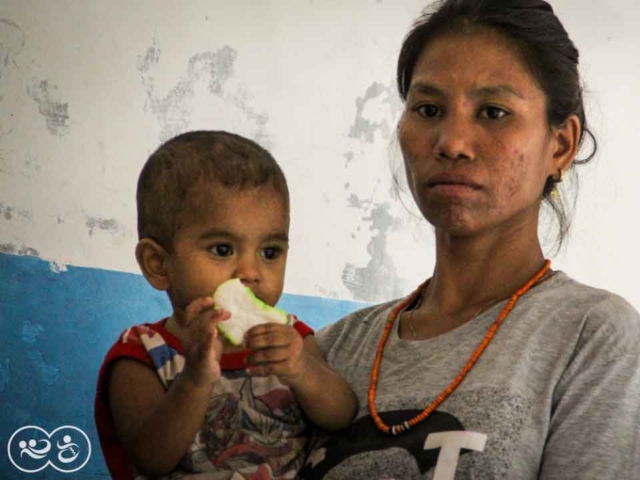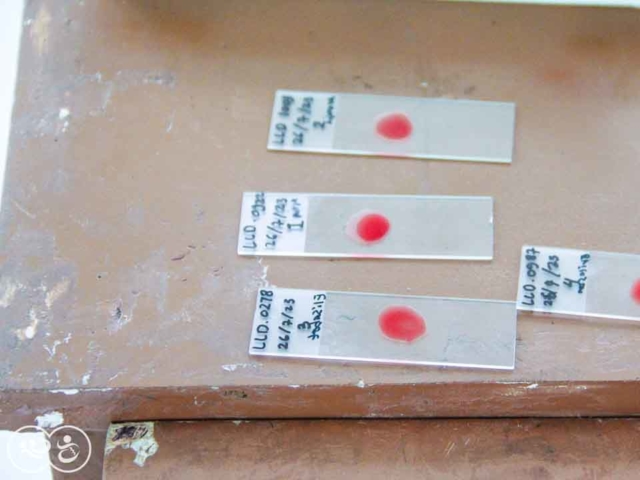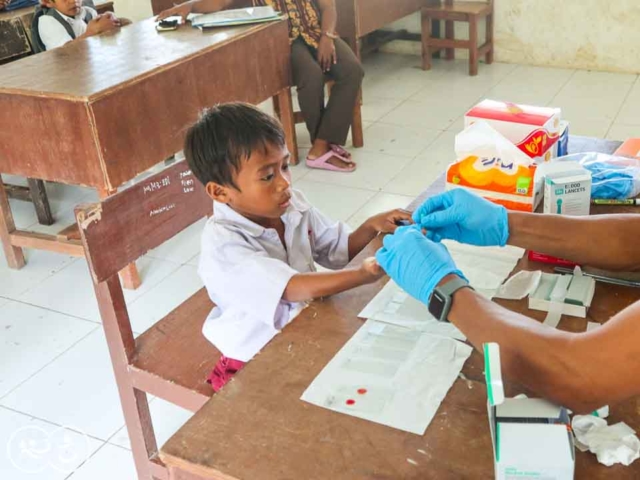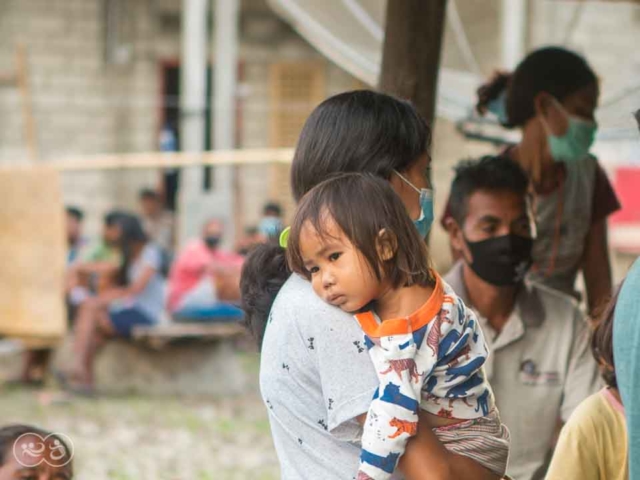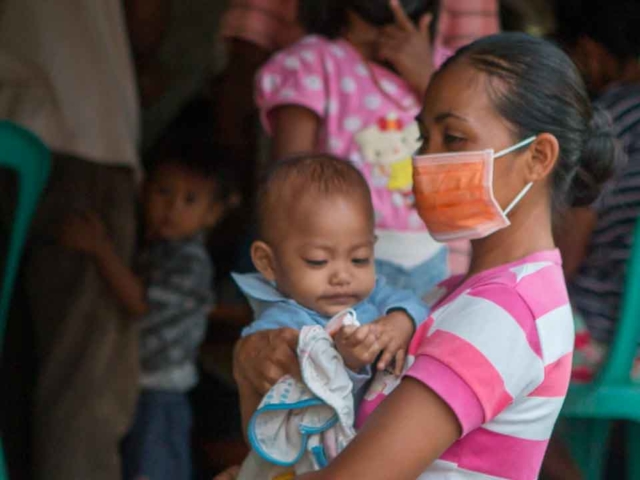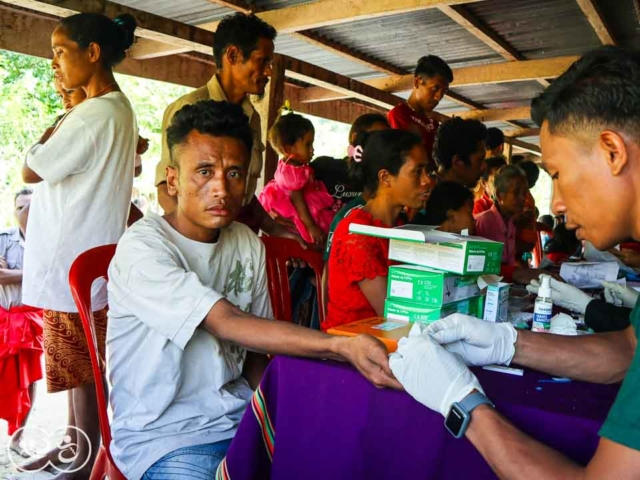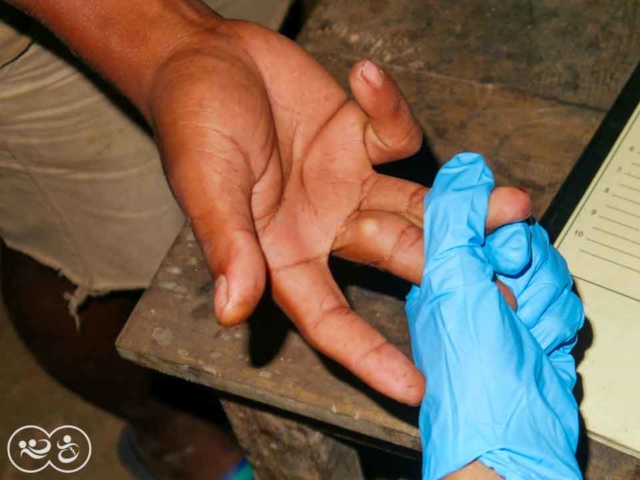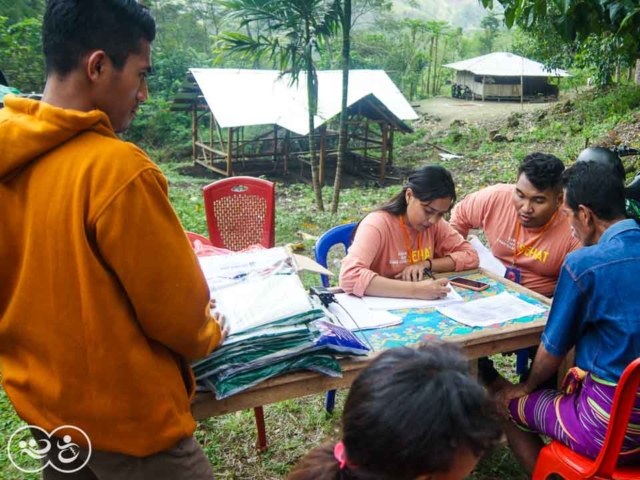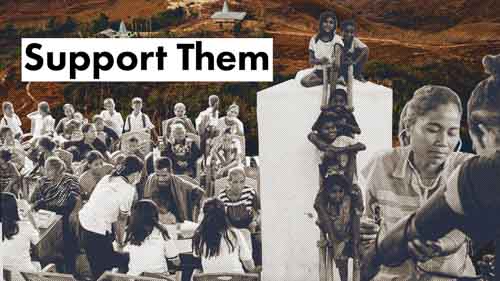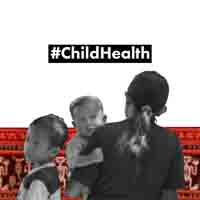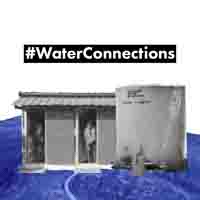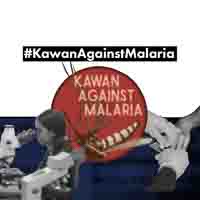In the remote village of Lulundilo, the roads are more than rugged dirt paths that are challenging to navigate. Even the most robust vehicles struggle to get here. In this context, the Truck of Life, specifically designed for these harsh terrains, makes all the difference.
After hours of travel, the social and medical teams from the Fair Future Foundation finally arrive, driven by a single goal: to ensure that the #ZeroMalaria program reaches even the most isolated places.
Here, water and food are scarce, and access to medical care is virtually non-existent. Yet, life goes on in a precarious balance.
A child named Daniel catches the medical team’s attention. He’s between five and seven years old and visibly sick. A rapid malaria screening test is conducted, followed by a microscopic examination confirming Plasmodium vivax’s presence in his blood. It’s not a surprise to the team, but it’s a harsh reminder of the reality of this disease and the threat it poses to these communities.
The healthcare professionals immediately define a treatment protocol. Acting quickly is crucial; malaria can be fatal, especially for a child as young as Daniel. Antimalarials are administered, and his condition is closely monitored. At the same time, part of the team engages with his family and community to educate them on malaria prevention. It’s not just about medication; it’s also about raising awareness and changing behaviours.
The #ZeroMalaria program is much more than a simple hashtag. It’s an initiative that mobilizes over a hundred people, including more than sixty volunteers, committed to making a real difference. Living conditions in places like Lulundilo make this disease particularly difficult to combat, but these challenges only strengthen the team’s resolve to continue the fight.
Daniel’s situation is not unique. It reflects the daily life of hundreds of others in villages just as isolated and conditions just as tricky. And that’s why the work continues. For every child saved, a family is preserved, and a community becomes more robust. But there’s still much to do.
The fight against malaria in such remote regions is far from over. Every day, the team rises with renewed determination to reach villages like Lulundilo, Haray or Lahiru, aware that every action, every administered medication, and every education session can save a life and change destiny.
Alex Wettstein – Fair Future Foundation medico-social camp in East Sumba – Rumah Kambera, Lambanapu, 17th of October, 2023
In my recent article, I pull back the curtain on the grim healthcare conditions in East Sumba, an area plagued by preventable diseases like malaria. With “authentic indignation,” I openly question why larger organizations are absent and why support from our home country, Switzerland, is conspicuously missing.
My team of committed volunteers and I are often the only beacon of hope for these vulnerable families. As Fair Future Foundation approaches its 15th anniversary, this milestone serves as both an achievement and an urgent reminder: The battle is ongoing, and the need to continue our work has never been more pressing. Read it here!
Faces and Places of Change: Capturing the #ZeroMalaria Journey
Malaria remains one of the most devastating diseases affecting East Indonesia, with thousands of deaths occurring annually and implications for families, communities, and economies.
As we are doing here in Sumba Timur, improving access to clean water and healthy sanitation facilities helps significantly reduce the spread of malaria by limiting the habitats of mosquitoes. Mosquitoes need water to breed; if there is no standing water, if the water stays cool, stays out of the light and circulates, they cannot reproduce. In addition, adequate sanitation facilities reduce individuals’ exposure to disease-carrying mosquitoes.
Clean water, such as #waterconnections projects, actively participates in preventing the complications of malaria. People with malaria need to drink plenty of water to avoid dehydration, which can be difficult in areas where access to clean water is limited, as is the case in the regions where we are right now with the @fairfuturefoundation and @kawanbaikindonesia teams.
In short, improving access to sanitation facilities and clean or safe water is, for all of us here -in the context of our medical care programs- an essential element in the fight against malaria. It will help reduce the spread of disease-carrying mosquitoes, prevent complications and improve the recovery of people with malaria. We fight the spread of #malaria by understanding how it is transmitted, providing primary medical care and providing access to clean, uncontaminated water sources. We desperately need antimalarial drugs and rapid tests to detect the disease. You can help us by donating via the foundation’s website. @unicef and @unicefindonesia? Are you ready to fight this epidemic with us? We are onsite, and we need you.



